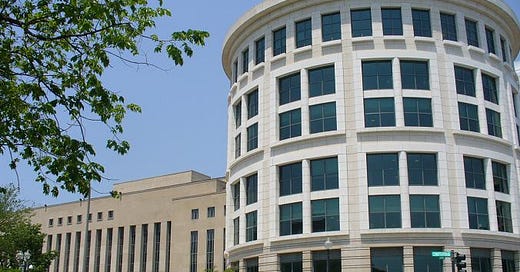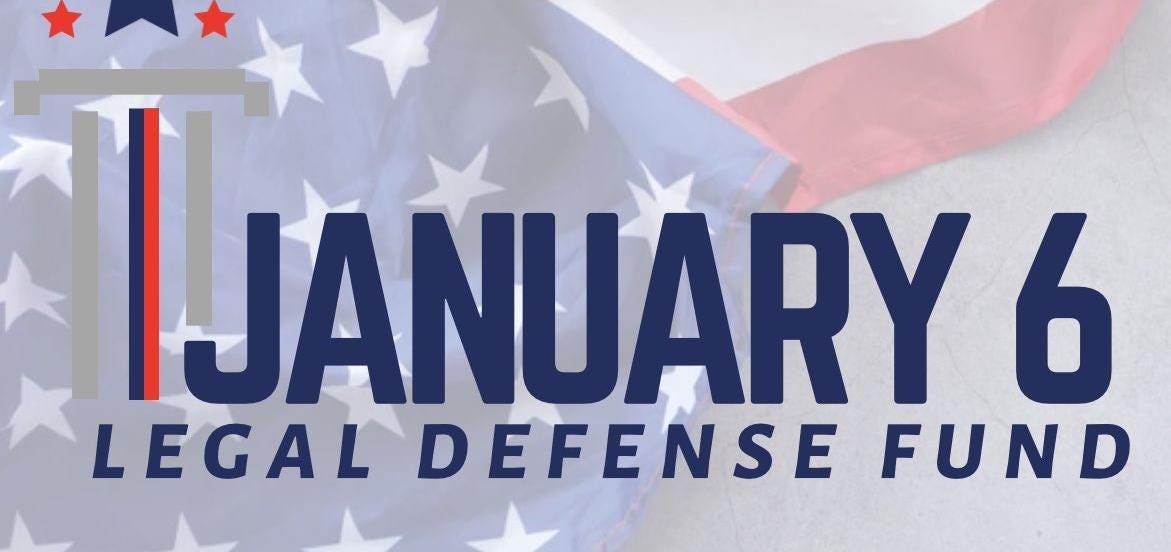Two Trump Appointees on the D.C. Circuit Court of Appeals Roll a Grenade into DOJ's Tent.
The Only Question is Whether They Pulled the Pin Before Doing So
Captain’s Log: I represent more than 30 defendants in January 6 cases. My efforts are funded almost entirely by online contributions from the general public. These pay the costs of the litigation, as well as provide income to me that allows me to keep the lights on, coal in the fireplace, and dog food in the cat’s bowl (it’s cheaper). If you believe that January 6 defendants should have the opportunity to have an attorney they have confidence in, regardless of their personal finances, then you can help. 100% of donated funds go to support my work on behalf of these defendants. All revenue from subscriptions to this Substack also go to those expenses.
On Friday April 7, 2023, the Circuit Court of Appeals for the District of Columbia handed down its long-awaited decision in United States v. Fischer, a January 6 prosecution pending before District Judge Carl Nichols in the District Court for the District of Columbia.
Judge Nichols, a Trump appointee, was the only Judge on the District Court to hold that the Government could not use of 18 U.S.C. Sec. 1512(c)(2) — “corruptly obstructing an official proceeding” — as a charge against January 6 protesters. He found that the alleged conduct relied upon by the Government did not fit within the confines of the statute’s language as Congress intended when it added the provision to the already-existing “Obstruction of Justice” statute.
The case had been briefed back in the fall of 2022, and the oral argument before the Circuit Court was the first week of December, 2022. The fact that a decision did not come down quickly suggested that the Court panel was divided, and more than one opinion was being drafted. As it turns out, there were three opinions — one from each of the three judges.
The way this works is that after the oral argument, the three judges on the panel meet immediately to vote on the outcome. Prior to the oral argument they have fully briefed all the issues in their separate chambers, and may have even shared thoughts with each other. The vote is simply — “Which side wins?” The vote here was 2-1 to reverse Judge Nichols and allow DOJ using the Sec. 1512(c) charge of “corruptly obstructing an official proceeding.”’
But that was the easy part. Much more difficult is the question of how to make the three separate views of the three judges work back in the District Court where the trials take place and the juries must be instructed on the law. On one particularly key issue important to making use of the decision, the three judges did not have a unifying view. In fact, all three judges had different views.
Every crime has two components — the physical act and the mental thought process. Those are called the “actus reus” and the “mens rea.”
If you swing a baseball bat and hit the person standing in front of you, that is aggravated assault. You swung the bat and intentionally made contact with the person you could see in front of you.
If you swing a baseball bat and hit person standing behind you — not knowing there was a person standing behind you — that is not a crime. The actus reus is present — swinging the bat and making contact — but the mens rea is not because you didn’t know anyone was behind you.
The main focus of the Fischer case in the district court dealt with the actus reus— was the protest/riot activity on January 6 the type of “obstructing” conduct which Congress meant to include when it amended the obstruction statute by adding “or otherwise corruptly obstructing an official proceeding?”
But what the three opinions have done is call into question the proper scope of the mens rea — in the context of the statute, what constitutes “corruptly” obstructing as opposed to lawfully obstructing?
Keep reading with a 7-day free trial
Subscribe to Shipwreckedcrew's Port-O-Call to keep reading this post and get 7 days of free access to the full post archives.





